Climate Change and the Turks and Caicos
The last of our finals are just around the corner and Directed Research projects are underway. Literature reviews are done and data collection has already started on this semester’s nine projects. I again am fortunate to be working with five students on a project that assesses and monitors our local reef for natural and anthropogenic impact. This is critical now more than ever with the continuing development on South Caicos. As part of this project, we are using Global Coral Reef Monitoring Network (GCRMN) methods. Data collected includes abundance and biomass of key reef fish taxa, relative cover of reef-building organisms and their dominant competitors, assessment of coral health (including extent of coral bleaching), coral recruitment, abundance of key macro-invertebrate species, and water quality (including temperature). This collaborative effort is aimed at increasing our understanding of the processes that shape coral reefs and providing actionable advice to policy makers, stakeholders, and communities at a variety of scales. Specific questions we will address this semester include the role of herbivorous fish in maintaining a healthy reef, recovery from the recent bleaching event, and identifying coral recruit potential.
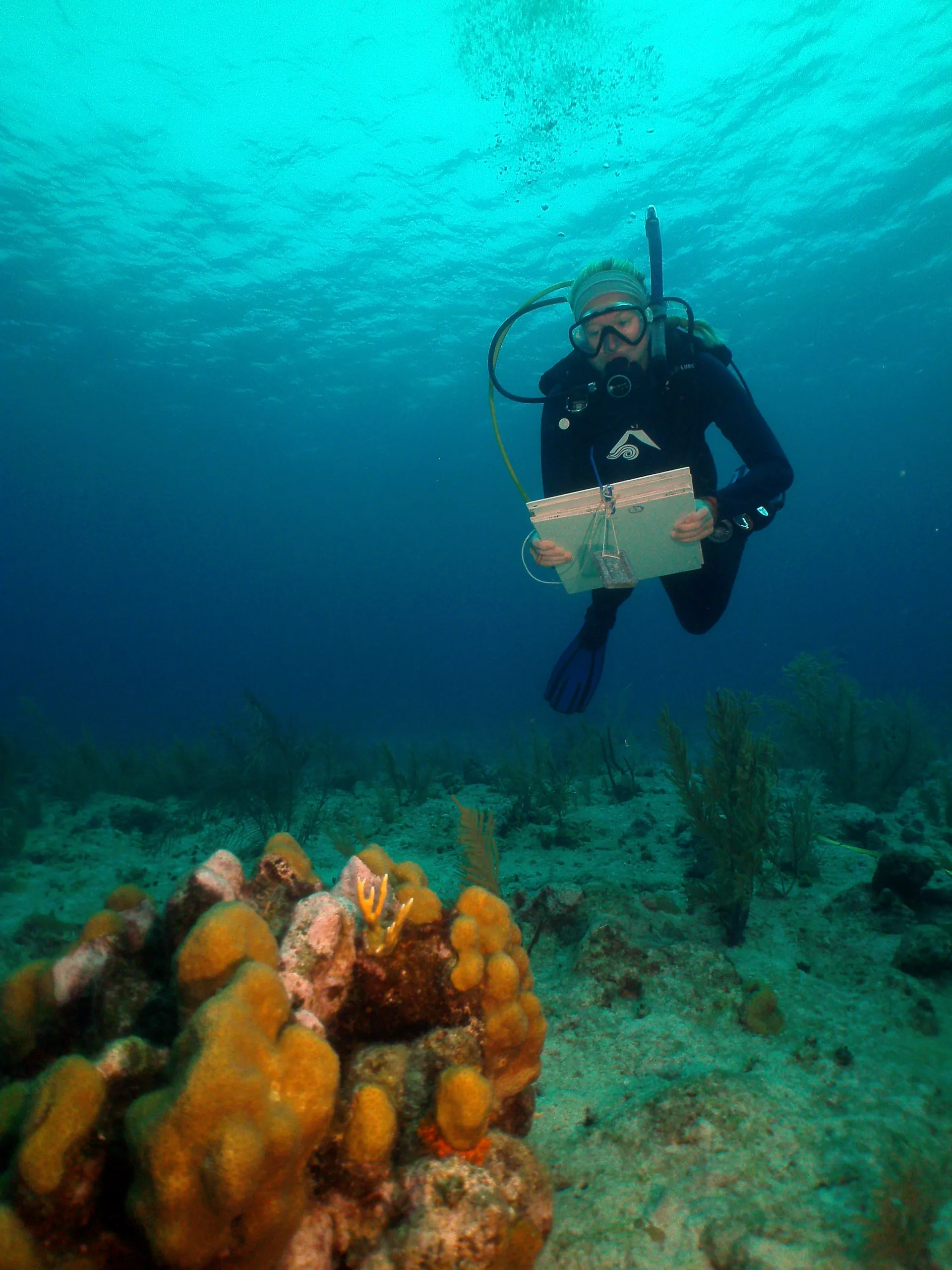
Kalla Fleger (Virginia Polytechnic Institute and State University) surveys fish.
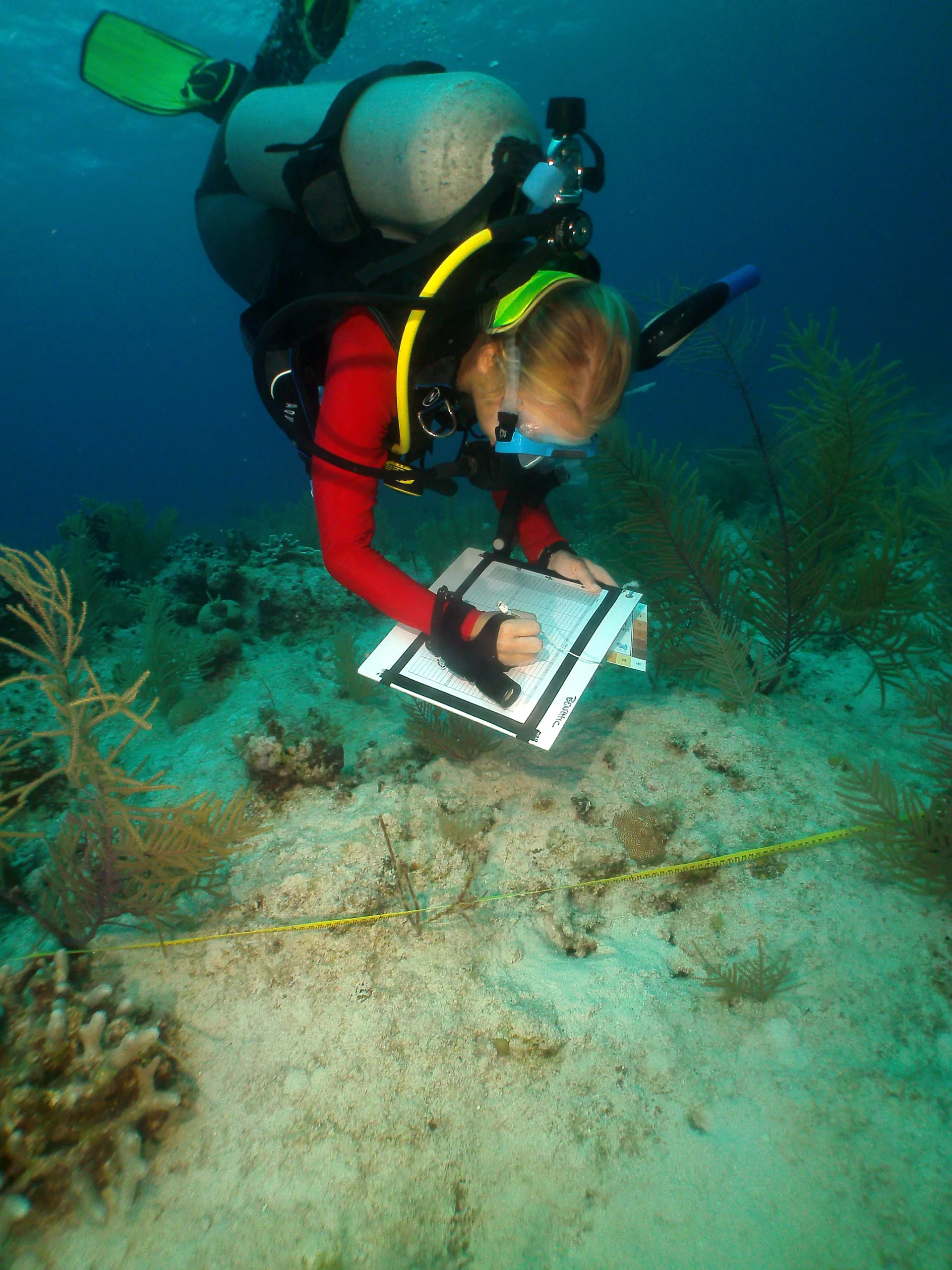
Amanda Paskavitz (Skidmore University) is collecting data on coral bleaching
We at the SFS Center for Marine Resource Studies (CMRS) believe in the importance of studying the impacts of climate change on local ecosystems, and we have included this research in both our Center’s program and research components. Likely impacts of climate change to marine and coastal ecosystems include temperature change on organism metabolism and water chemistry, including carbonate cycle, precipitation change on water balance, and wind and water circulation pattern changes. Our plan for long-term data collection is thus crucially important and beneficial to stakeholders and policy makers as they undertake marine turtle management and conservation.
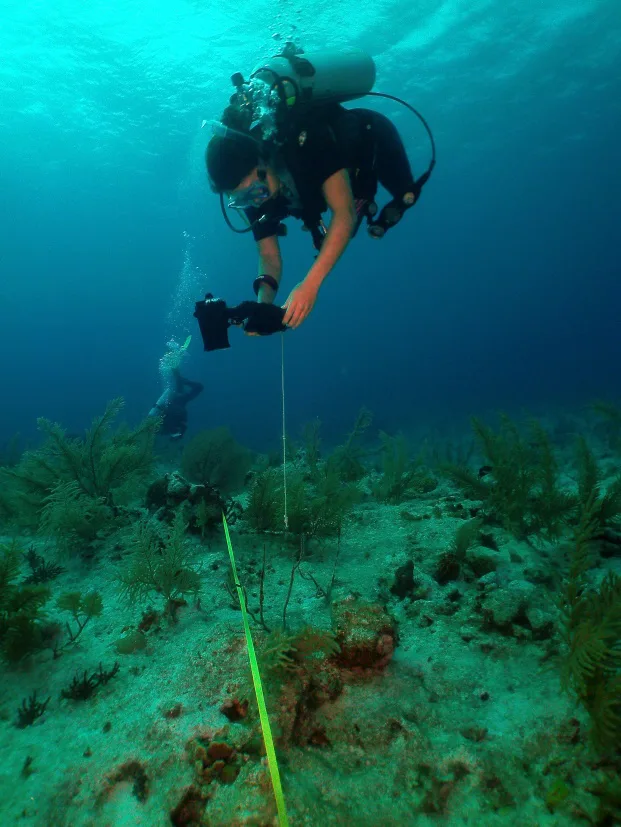
Katie Rose Jacobus (University of San Diego) photographs the reef for CPCe analysis.
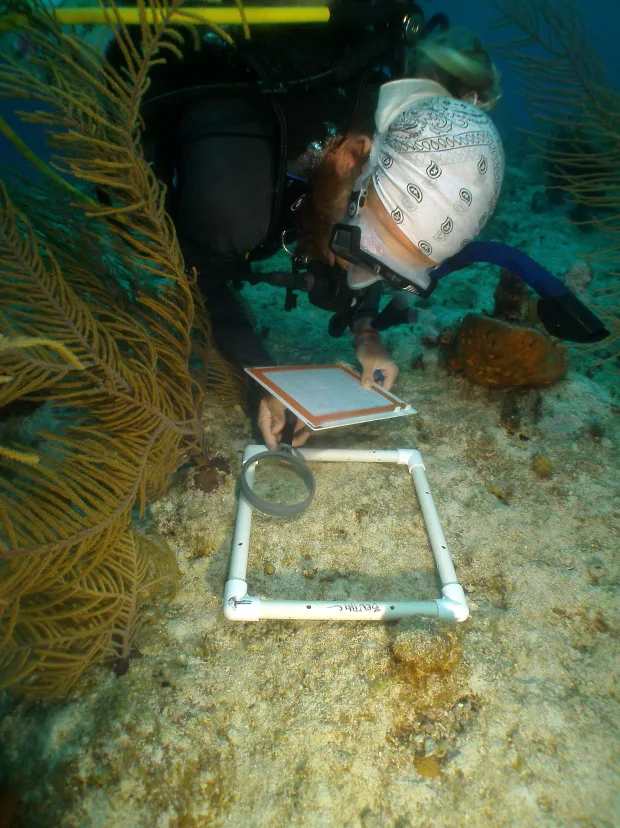
Matt Speegle (University of Redlands) is identifying and counting coral recruits.
On Saturdays the Center is bursting at the seams! Community members join us for swim lessons, snorkel club, quiet and active games, and crafts with a Featured Creature. With the help of the Snorkel Club, we are maintaining two marine snorkel trails. As if that were not enough, the South Caicos Marine Science Club was formed this semester under the watchful eye of our Interns. Data collected by club members will be presented to the community along with our students’ Directed Research at the end of the semester.
As the semester winds down we are looking forward to our visit with the Turks and Caicos Island Society for the Prevention of Cruelty to Animals (TCISPCA). With the help of our CMRS Staff, TCSPCA will run a spay and neuter clinic May 11 – 17. Also coming to South Caicos this May is the annual board meeting for the Association of the Marine Labs of the Caribbean.
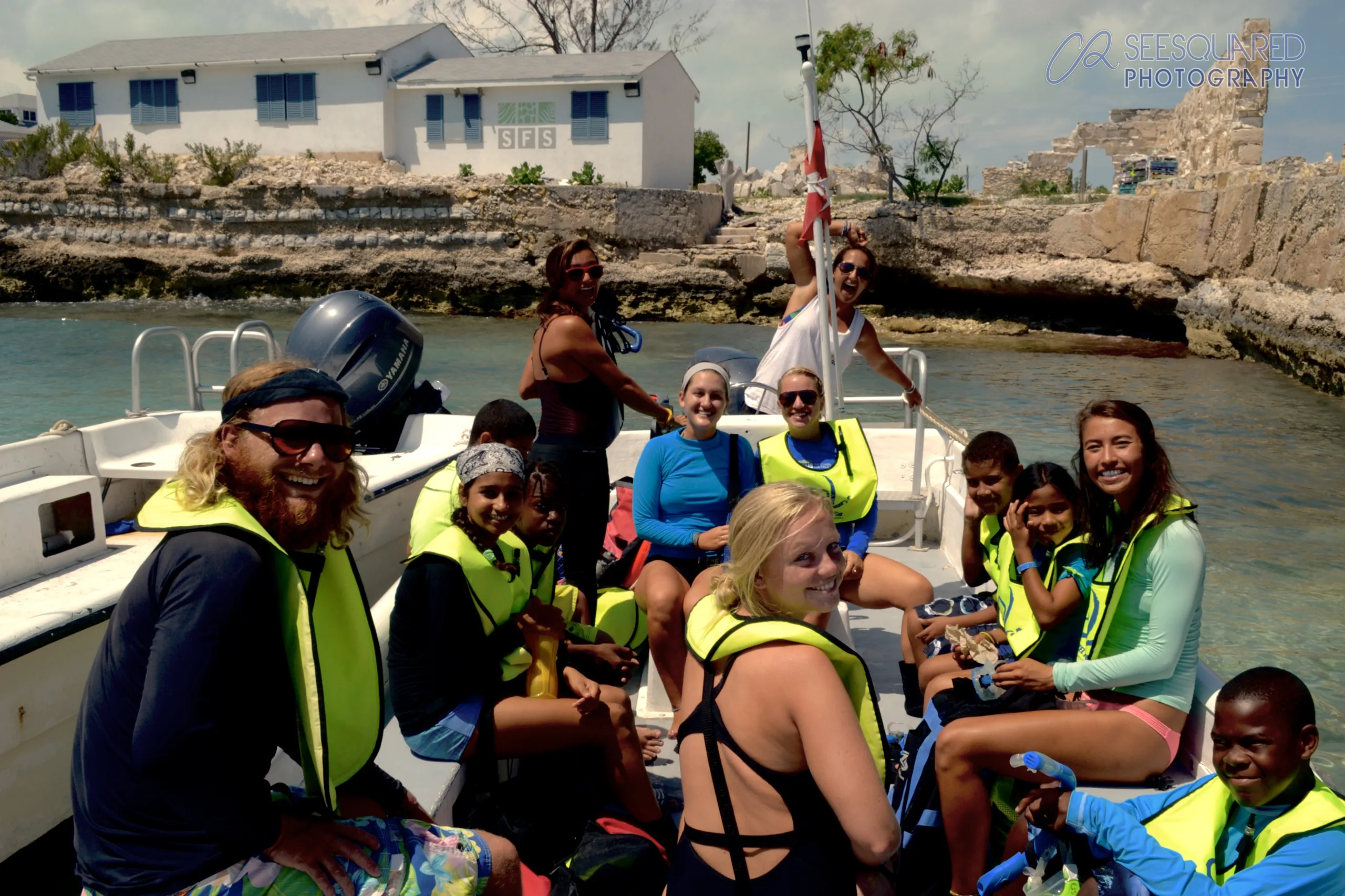
South Caicos Marine Science Club and SFS students working together to collect data on the local reef systems. Photo by Waterfront Intern Chris Casaclang
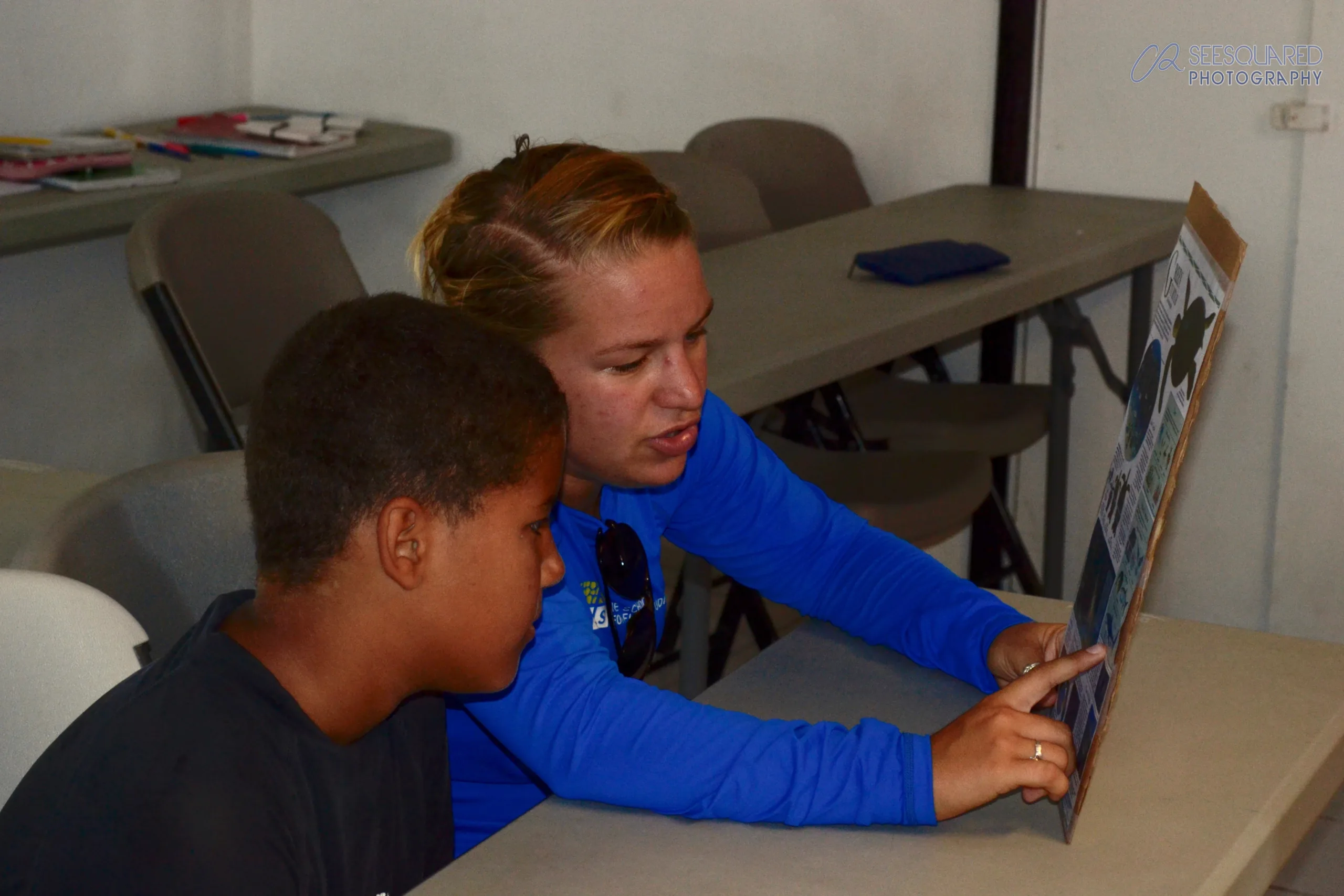
Erin Lyons (University of Virginia) working with Science Club member before they head out into the field. Photo by Waterfront Intern Chris Casaclang
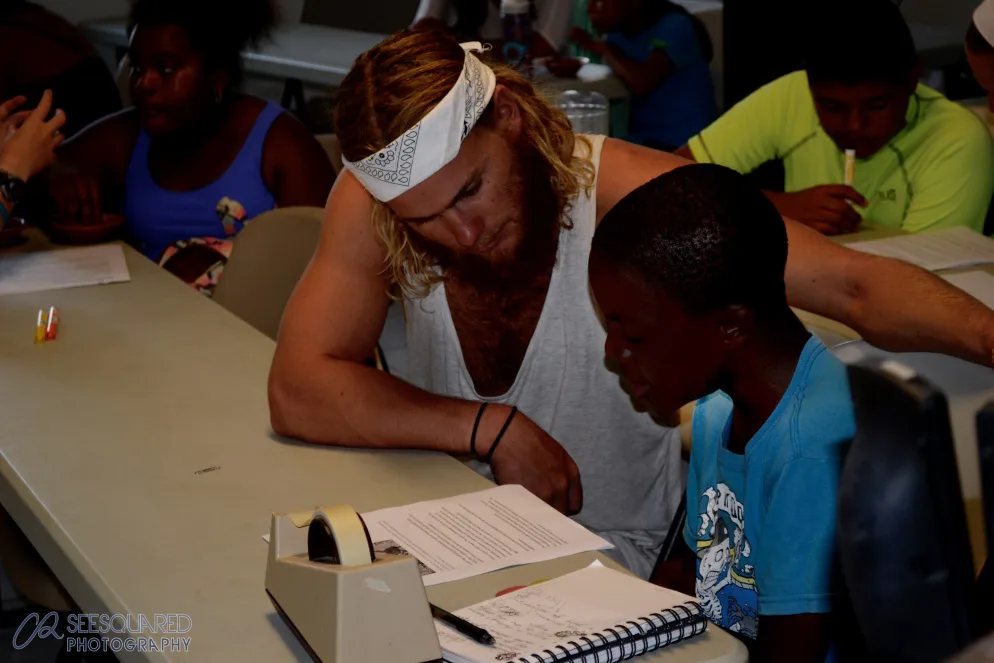
Matt Speegle (University of Redlands) working with snorkel club as they prepare for their field exercise
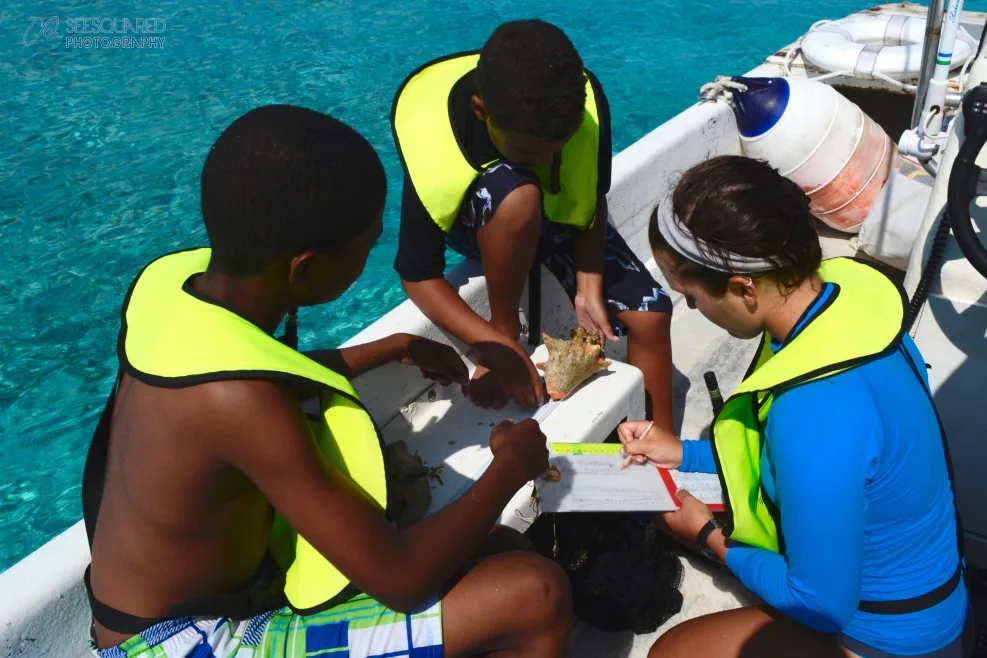
Nicole Graziano (University of St. Thomas/Minnesota) in the field with snorkel club measuring conch
Related Posts
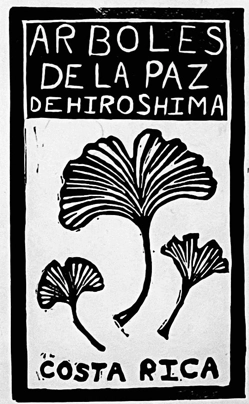
Trees of Peace from Hiroshima: A Time Traveler and Emissary of Hope
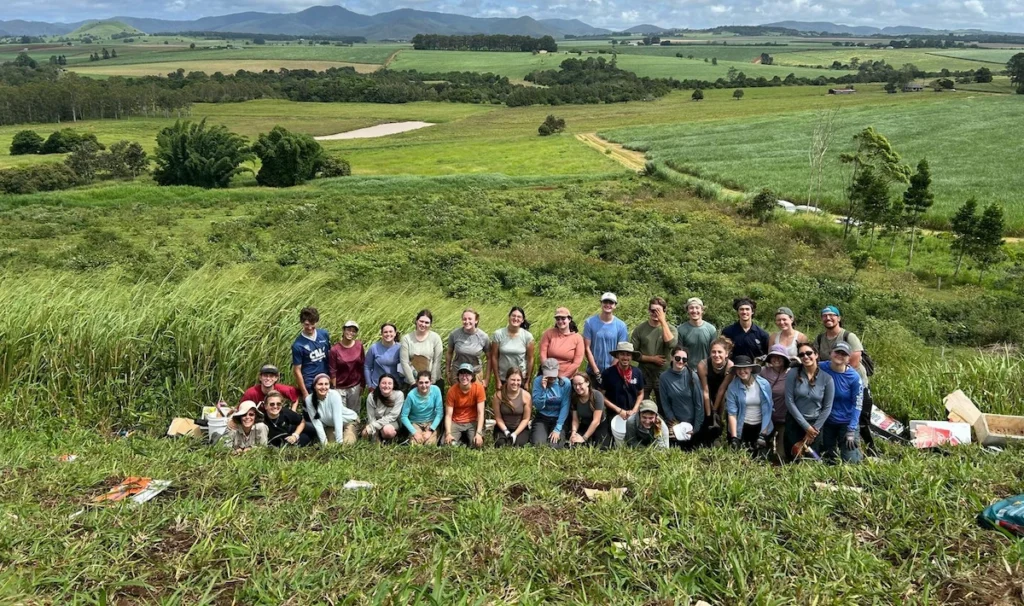
Cinder Cone Chronicles: Lessons from Drought, Data, and Determination
